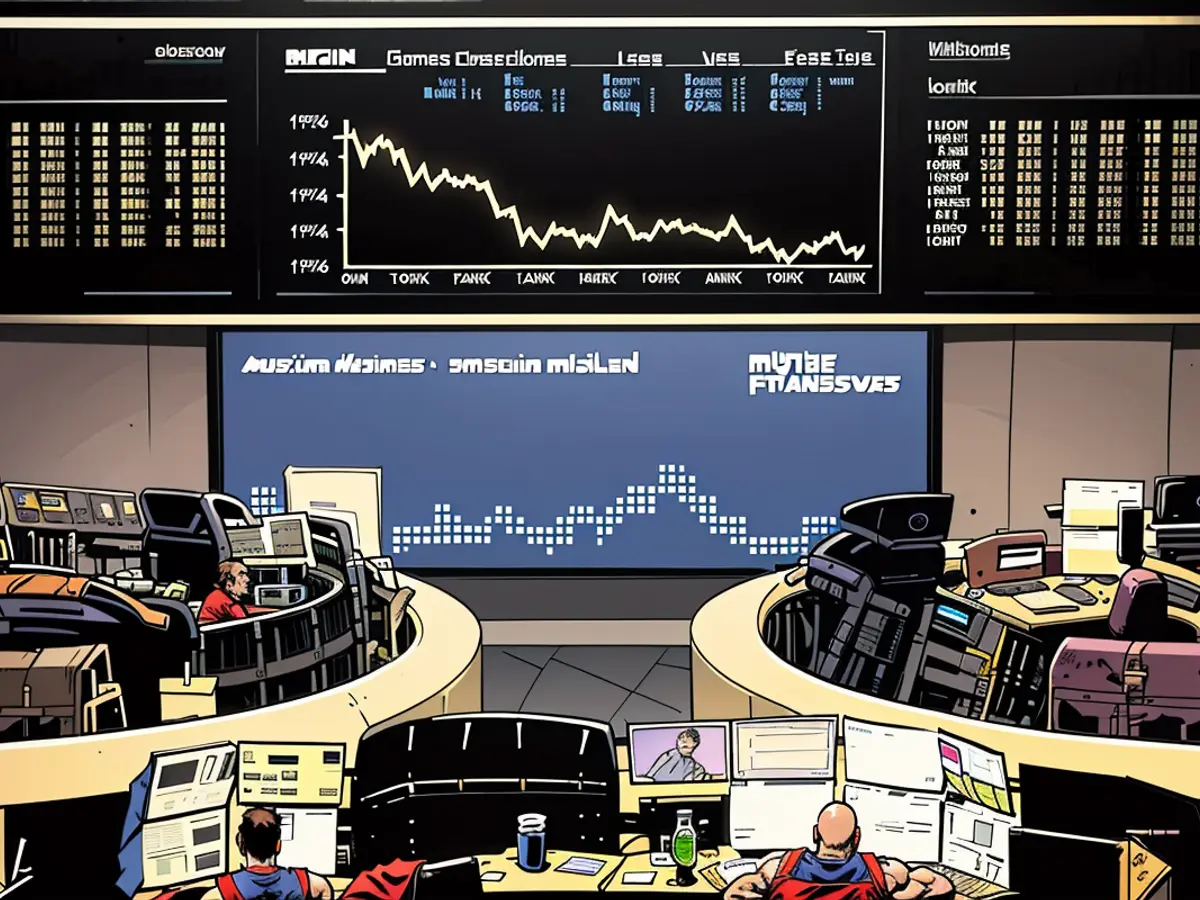The German DAX index braces for an uneasy week ahead.
The ambiance at the Frankfurt Stock Exchange has been grim recently, and it might get more volatile. Apart from the sudden parliamentary election in France, speculations about a trade dispute with China are causing anxiety.
The German stock market could become more volatile in the upcoming week as well. Besides the unexpected French parliamentary election, concerns about a potential trade conflict with China persist, dampening the mood. Furthermore, the US Federal Reserve (Fed) dashed expectations for a slow monetary easing in its previous meeting despite encouraging inflation figures.
Market analyst Andreas Lipkow considers the DAX to be in a precarious technical zone because the recent losses have pushed it below the 21- and 50-day average lines. These indicators represent short- to medium-term growth trends. To reverse the trend, the German index needs to recapture the price zone around 18,350 points, according to the expert.
DAX slightly above 18,000 points
The DAX closed with a 1.44% loss, ending at 18,002.02 points in the evening. Despite briefly falling below the 18,000-point mark for the first time in six weeks, it managed to stay above this level. The weekly loss of 3% was the highest since Aug 2023.
More details about recent happenings on the Frankfurt floor can be found in our Stock Exchange Daily.
Approximately a month ago, the DAX reached an all-time high of almost 18,900 points. Although it has since dropped by almost 5%, it has still demonstrated an increase of about 7.5% since the start of the year. This is slightly more than its Eurozone counterpart, the EuroStoxx 50, and significantly more than the US leading index, the Dow Jones Industrial.
Analyst Claudia Windt of Landesbank Helaba believes that the market could at least moderately recover from the current setbacks. She anticipates that upcoming US data on crucial retail sales and industrial production won't dampen hopes for a Fed rate cut in September. Additionally, the purchasing manager indices for the Eurozone industry and the German ZEW Index are expected to continue signaling an economic recovery.
Le Pen could win decisively
The European elections stirred unease in the markets. Unexpectedly, it was not the right-wing itself but French President Emmanuel Macron's decision to call for a new parliamentary election after the poor performance of his party that caused a stir. It's possible that Marine Le Pen's right-wing populist party, Rassemblement National (RN), similar to the European election, could secure a clear victory.
Macron's decision put pressure not only on the domestic stock market but also caused a notable increase in risk premiums for French and Italian government bonds. A right-wing government could "complicate France's reform course in an already tense budget situation," warns Helaba expert Windt. Additionally, with the strengthening of right-wing parties demanding more national sovereignty in Europe, renewed conflicts over European debt policy could break out.
The threatened EU tariffs for Chinese electric cars and potential countermeasures might not be as significant as feared. On the one hand, there is still a possibility of an agreement between the parties before the first week of July, which would mean the tariffs would not take effect. On the other hand, the extent and effectiveness of the announced response are uncertain, as Chief Economist Ulrich Kater of the Dekabank stresses: "The Chinese economy is currently more dependent on foreign trade than ever before."
Business Agenda remains consistent
Insights into the Chinese economic structure are provided by upcoming industrial production data. According to the Dekabank, the processing industry was the mainstay in the recent months.
Following US data on retail and industrial production, the ZEW Index will be disclosed next, which gauges confidence in the German economy. On Thursday, the decision on interest rates by the British central bank could be noteworthy, and on Friday, alongside purchasing manager indices from the industry in the Eurozone and the US, there is a significant expiration date on the term exchanges.
The business schedule for the upcoming week is consistent. Apart from capital market events of the diagnostics specialist Qiagen on Monday evening and the consumer goods manufacturer Beiersdorf on Tuesday, there are no significant appointments to highlight.
Read also:
The potential victory of Marine Le Pen's Rassemblement National in the French parliamentary election could negatively impact Dax companies, as a right-wing government might complicate France's reform course and heighten tensions over European debt policy.
Emmanuel Macron's decision to call for a new parliamentary election after his party's poor performance in the European elections has caused market unease, leading to a rise in risk premiums for French and Italian government bonds.
The US Federal Reserve (Fed) recently dashed expectations for a slow monetary easing, which could further increase volatility in the German DAX index, as some Dax companies might be affected by the potential trade dispute with China.








